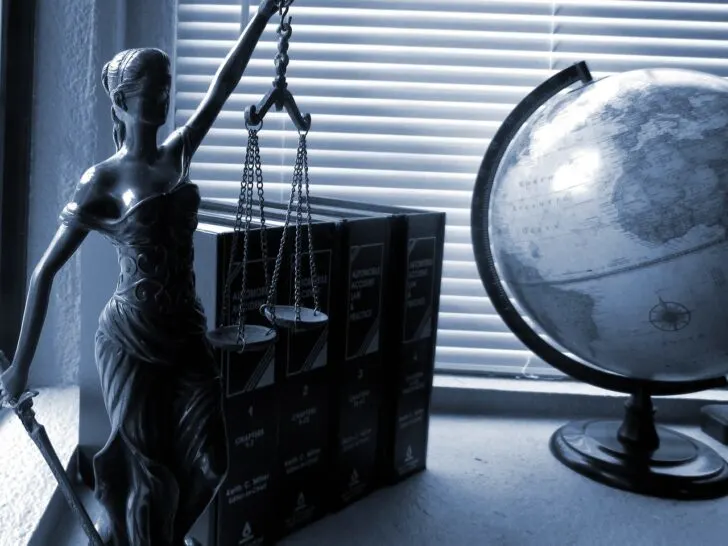It is never desirable to be in a situation where the services of a lawyer are necessary, but sometimes life throws you curveballs. Several stressful family situations can arise that may necessitate consultation with a lawyer. In some cases, it may be evident that you need legal help, while in others, you may not be sure if you do or not. This blog post will discuss four common stressful family situations and when you should consult a lawyer.

Separation
During a separation is one of the most apparent times you may need to consult with a lawyer. Ending a marriage can be complicated on its own. But the legal side of it is even more complex, and it is vital to have someone who can help protect your rights.
When it comes to divorce, you need to be aware of issues like child custody, visitation, child support, spousal support, and the division of assets. These are complex and stressful issues that can be difficult to tackle, particularly when you are already going through a challenging situation.
- Child custody
Child custody can be complicated, and there are many factors that the court will take into consideration when making a decision. If you are hoping to gain primary custody of your children, you will need to demonstrate that you are the better parent and that it is in the children’s best interests to live with you. This can be a difficult task, and it is crucial to have a lawyer on your side. They will be able to help you with the legal process and gather the necessary evidence and take your case to court.
- Child support
You may also be eligible for child support from the other parent after a legal separation. This is a legal obligation. Failure to pay can have serious consequences, including wage garnishment and jail time. Wage garnishment can be complicated because it can interfere with your ability to pay your bills and support yourself.
If you are facing wage garnishment, you must consult with a lawyer who can help you understand your rights and options. If you are on the other fence and are owed child support, you must speak with a lawyer to discuss your options for enforcement.
- Spousal support
You may also be entitled to spousal support from the other spouse, designed to help the lower-earning spouse financially and maintain their standard of living after the separation. The amount you are entitled to is based on many factors, including the length of the marriage, the earning potential of each spouse, and the needs of each spouse.
Usually, the longer the marriage, the higher the amount of spousal support. Additionally, the spouse with a higher earning potential is usually the one who pays spousal support, while the amount may vary depending on the needs of each spouse.
- Division of assets
Another vital issue to consider during a separation is property division, wherein all assets and debts you acquire during your marriage must be divided between the two of you. This can be complicated because you must determine who gets what assets and how the debts will be divided.
For instance, if you did not sign a prenuptial agreement, the court may consider your home a marital asset, and it will need to be divided between the two of you. Similarly, the court must decide how that debt will be divided if you have a lot of debt.
Domestic violence
Domestic violence victims need to seek legal protection from their abusers. In some cases, this may mean filing for a restraining order. Restraining orders are serious legal documents that can have several consequences for the abuser, including limiting their access to firearms, preventing them from being around your children, and forcing them to move out of your home.
Other types of protection, such as child custody and support orders, may also be available. Suppose you are a victim of domestic violence. In that case, it is essential that you consult with a lawyer to discuss your options and see if a restraining order is correct or if there are other means of protecting yourself and your family.
Elder care issues
Several legal issues can arise when it comes to elder care. For example, if you want to put an elderly parent in a nursing home, you may need to consider issues like power of attorney, guardianship, and estate planning.
A power of attorney gives someone the legal authority to make decisions on your behalf, and it is vital to choose someone you trust. Guardianship is a legal arrangement that provides someone the responsibility for caring for another person, and it should only be considered a last resort.
If you are considering any of these options, you need to consult with a lawyer to ensure that you take the proper steps. A lawyer can help you navigate these waters and protect your loved one’s rights.
Similarly, when it comes to estate planning, a lawyer can help ensure that your elderly loved one’s wishes are fulfilled.

Business disputes
In families with multiple people involved in a business, there can be a lot of potential for conflict. If you have disagreements with your family members about the direction of the business, it may be time to speak with a lawyer. A lawyer can help you resolve these disputes and protect your interests.
For example, if you have been running a restaurant with your family for years and want to open a second location, but your siblings are opposed to the idea, then taking the time to consult with a lawyer can help you negotiate with them and reach an agreement. It may involve drafting a contract or partnership agreement to ensure everyone is on the same page.
Final Thoughts on Situations When You Should Consult with a Lawyer
If you find yourself in any of these stressful situations, then it is essential to consult with a lawyer. A lawyer can help you navigate the legal process and protect your rights. Rest assured that with a little bit of help, you will be able to get through these challenging times and rise out from them even stronger.
